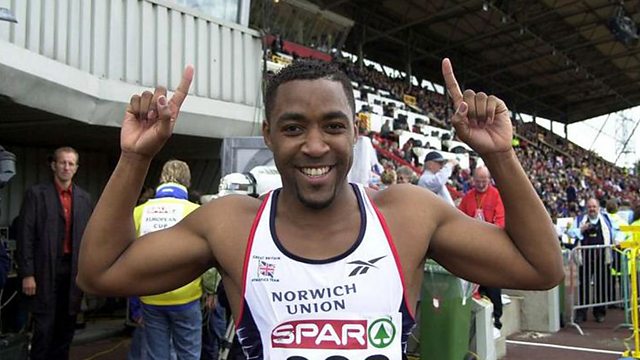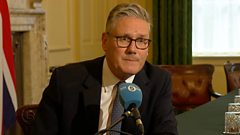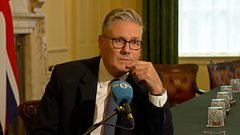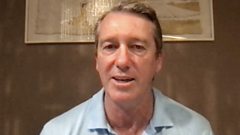Darren Campbell: IAAF must decide if ex-dopers can compete again
Campbell said the men’s 100m final at the World Championships had been overshadowed by the media's narrative of two-time doper Gatlin as "evil".
Olympic Gold medalist Darren Campbell says "a decision needs to be made" from the IAAF on whether athletes who have previously taken performance enhancing drugs should be allowed to compete again.
Campbell, a member of the ��ѿ��ý's commentary team, said he thought the men’s 100m final at the World Championships had been overshadowed by the media's narrative of two-time doper Gatlin as "evil".
In 2001, when Gatlin was still at college, he was given a two-year suspension for taking a banned amphetamine.
He successfully argued this was due to medication he took for attention deficit disorder and was allowed to return to competition after just a year.
Then, in 2006 - having won the 100m and 200m double at the 2005 Worlds in Helsinki - he tested positive again, this time for testosterone.
He served a four-year ban that had been twice reduced from a lifetime and eight years
Campbell said “the most important thing is what we learn” from Gatlin’s experiences.
"People like Dwain Chambers and Justin Gatlin - if they're willing to go and share that experience and knowledge with young people to make sure no young person ends up in that situation that's vital, but we still end up right back at the same problem," said Campbell.
“Until the IAAF do something and make decisions where there is full clarity these things will always happen”.
"Where there are these situations where people have taken performance enhancing drugs a decision needs to be made whether they're allowed back in the sport or not," he added.
A previous IAAF statement reads: “The IAAF is proud of its position at the forefront of the global fight against doping in sport, and is resolutely committed to athletics, and to the preservation of a zero-tolerance policy with respect to doping."
“On an annual basis, the IAAF conducts an extensive anti-doping programme, including approximately 3500 annual in- and out-of-competition tests, scientific research, and informative and educational projects, being determined to remain the leading international federation in this regard."
“In recent years, this pledge has been underlined through a rigorous implementation of the Athlete Biological Passport.”
This clip is originally from 5 live Daily on August 26 2015.
Duration:
This clip is from
Featured in...
![]()
Sport—5 Live In Short
The best of 5 live's sport coverage, insight and analysis
More clips from 5 Live In Short
-
![]()
‘I struggled to get my shoes on and get dressed’
Duration: 01:05
-
![]()
PM: 'Nigel Farage and Reform are just the politics of grievance'
Duration: 00:41
-
![]()
What is Glenn McGrath’s Ashes prediction?
Duration: 00:40







